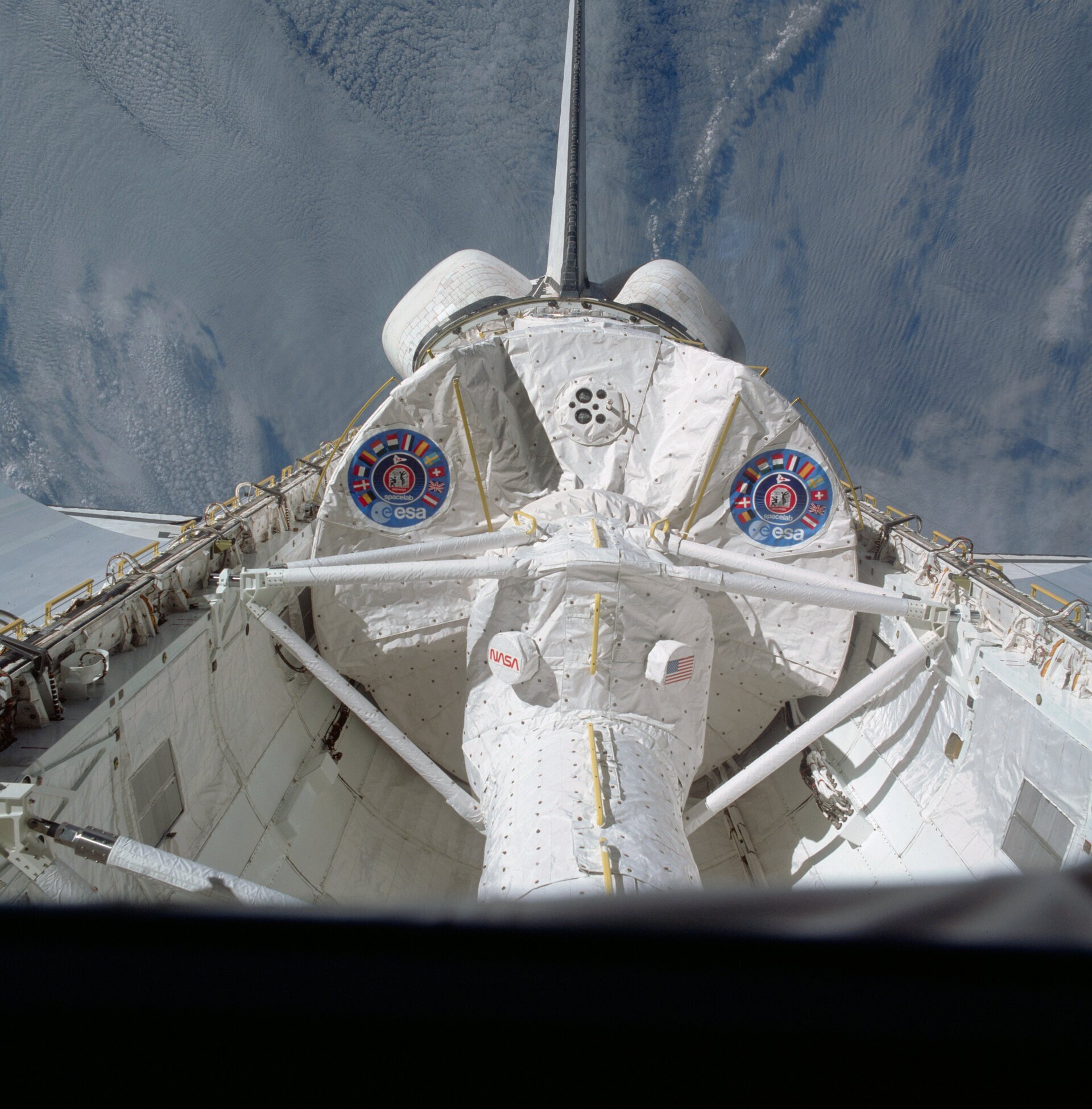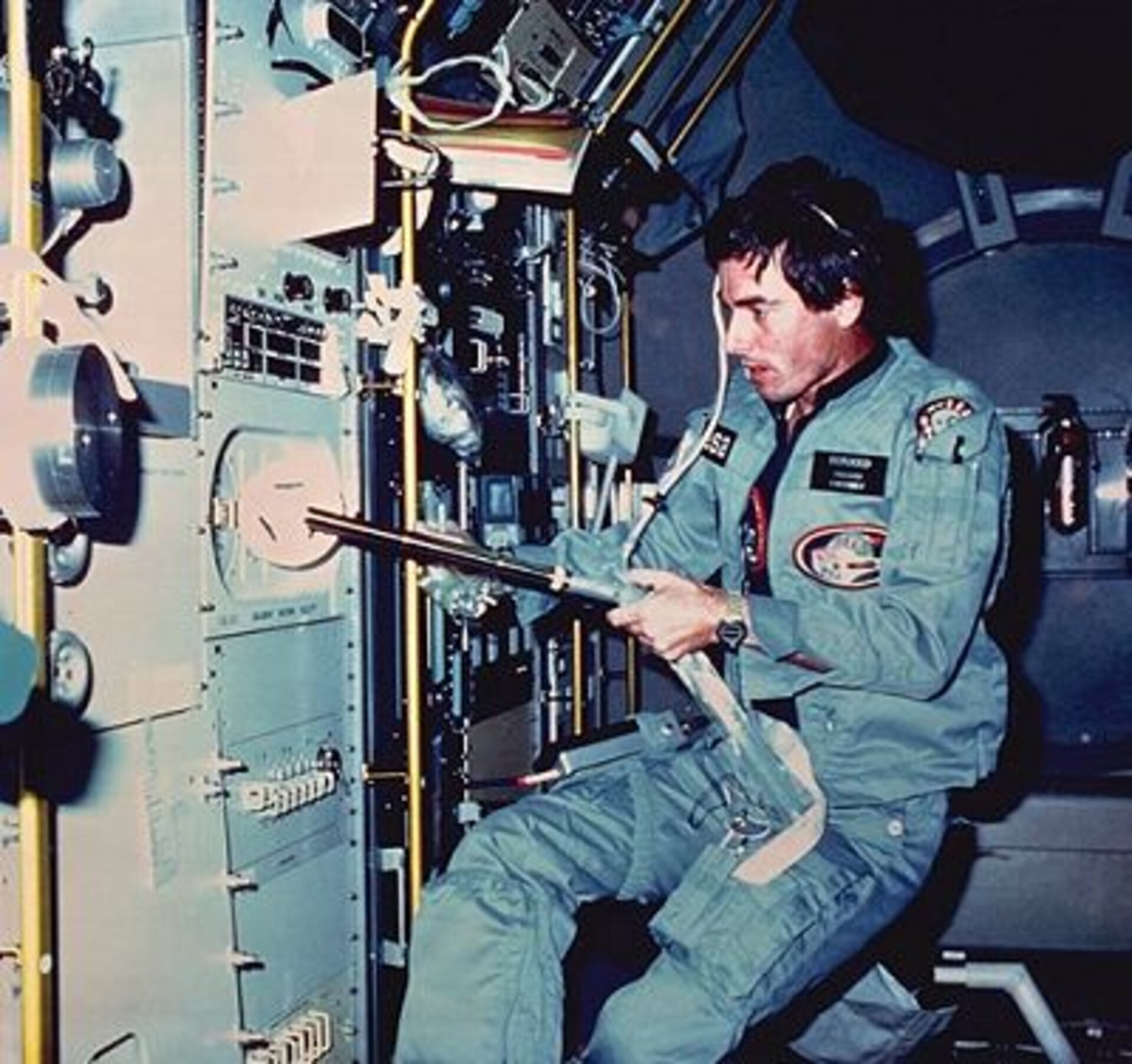23.11.2023

Forty years ago this month, the first European-built Spacelab was launched from Kennedy Space Center, Florida, on board Space Shuttle Columbia. Also on board was Ulf Merbold, who became ESA's first astronaut in space. The 10-day Spacelab-1 mission marked ESA's entry into human spaceflight activities.
On what was only the ninth Shuttle mission, Spacelab-1 was launched on 28 November 1983 at 11:00 local time (17:00 CET). Completing 166 orbits of Earth, on a mission which lasted 10 days, 7 hours and 47 minutes, Columbia landed at Edwards Air Force base in California on 8 December 1983 at 00:47 CET.
STS-9, as the mission is also known, was a landmark flight in several ways: it would carry the first non-career astronauts (Payload Specialists), the first non-US astronaut on a NASA mission (ESA's Ulf Merbold), the longest Shuttle flight and largest crew to date, and the first operational use of NASA's Tracking and Data Relay Satellite system.
A highlight though was that this was the inaugural flight of Spacelab, the first purpose-built space laboratory. During development of the Space Shuttle in the 1970s, NASA recognised the need for a facility to allow scientists to conduct experiments on the Shuttle while in orbit. Under a cooperation agreement with NASA, ESA was to build a modular research laboratory that would fit inside the Shuttle's cargo bay.
Europe was responsible for funding, designing and building this space laboratory and agreeing to deliver free of charge the Engineering Model, the first Flight Unit and ground equipment in return for a shared first mission. Led by Bremen-based VFW-Fokker/ERNO (later MBB/ERNO, then Airbus Space), 'Spacelab' was built by a consortium of European companies.

Ulf Merbold works with one of the experiments during the Spacelab-1 mission
For the first time the Shuttle carried a crew of six, including German ESA astronaut Ulf Merbold, the first non-American astronaut to fly on the Space Shuttle.
In preparation for Spacelab, ESA Member States in 1978 put forward 53 astronaut candidates for one European Payload Specialist slot, and four were selected: Ulf Merbold of Germany, Wubbo Ockels of the Netherlands, Claude Nicollier of Switzerland and Franco Malerba of Italy. Ulf was selected for the first Spacelab mission, with Wubbo as backup. Wubbo flew on the Spacelab-D1 mission in 1985.
During the Spacelab-1 mission over 70 scientific experiments were conducted in a variety of fields including astronomy, solar physics, space plasma physics, Earth observation, materials science, technology and life sciences. Working in two teams of three, the crew worked 12-hour shifts, allowing for 24-hour operations – it was far from a smooth cruise in orbit.
Between 1983 and 1998, Spacelab flew on a total of 22 Space Shuttle missions. Not only have Spacelab experiments made a major contribution to space science research, but also the knowledge and expertise gained by both ESA and NASA from Spacelab flights made a significant contribution to today's International Space Station programme.
Many of Spacelab’s features live on in space hardware that is flying today. The pressure shell design was reused for the Harmony and Tranquility modules on the Space Station, and supply spacecraft, such as ESA’s Automated Transfer Vehicles and the commercial Cygnus, reuse Spacelab’s exterior structure.
Europe’s Columbus laboratory on the Station evolved from Spacelab. On the inside, Spacelab used standardised science racks that contributed to its success and were adopted for all of the Station’s laboratory modules.
In the same way that Spacelab was operated by international teams of astronauts, so are today’s European experiments and laboratories on the Station. They are kept running and performing science by the Station’s Expedition crews – which now include European astronauts.
Quelle: ESA

